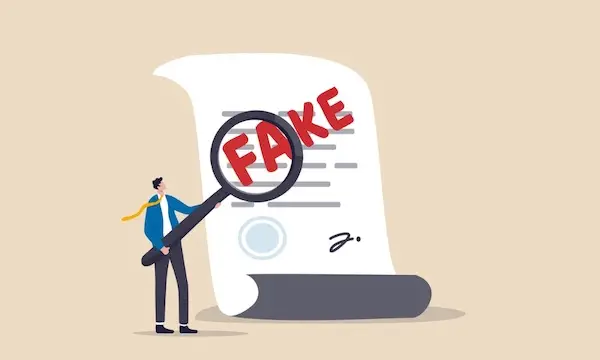No products in the cart.
- Home
- All Passive Income Methods
- Want to See How Much Other People Earned?
- Beginner’s Guide to Passive Income
- My Journey on Passive Income that 99% Population Don’t Hear About
- Litigation Financing – 30% ROI Anyone?
- IPO Under 90 Days!
- IPO Hopeful
- Unicorn Potential?
- An Enjoyable Hobby That Appreciates Too?
- Microlending in Africa
- How You Profit from Beyoncé and Bieber?
- Private Lending
- Tax Lien & Tax Deed in US
- You Can Still Get Bitcoin for $50K???
- A New Strategy with 40%–90% ROI in Year 1
- About Us
- Contact Us
Private Lending (17) – Bizarre Forged Documents
This episode is all about the pitfalls we have experienced in dealing with lending documents.
Didn’t we say before that you should pick an appraiser on the bank approved list? Actually, that’s just the first step. If you read through these appraisal reports, you’ll find that many times the comps they choose are extremely unreliable. They’ll pick comps with huge distances, not even in the same community, or obviously not comparable properties, but they’ll still be selected just because the bedroom count is similar. Or they’ll pick similar properties, but with closing dates before the market downturn. In short, as I mentioned earlier, we basically treat official appraisal reports as a nice to have now, and internally we’ve created our own valuation process and do our own valuations.
Once, we did go through a power of sale process, and it was the only time that the homeowner actually abandoned the house, leaving a big note on the door saying they borrowed the money because they were deceived by relatives, couldn’t repay it, and didn’t want the house anymore. They really emptied the entire house. After the process was completed, our lawyer contacted the appraisal company (one of the top three local ones, which does appraisals for banks all year round), and said, “Look at your appraisal value, why is it so different from the final realized market value, please explain.” And then, that was it, there was no response at all from the appraisal company.
The most interesting documents are the materials submitted by various borrowers and brokers. As mentioned before, we’ve encountered everything from grow-ups to those on the wanted list, so if something doesn’t make sense, there’s probably a problem. What we encounter the most is income inflation. Some report a seven-figure income under 30, which was neither a family business nor in a highly profitable industry; some have payslip which looked weird at first glance; some have bank account screenshots with obviously altered formats; some have documents that seem flawless until we check the phone numbers on the official website and realized it’s the borrower’s own company, etc.

The funniest thing is, we found a pattern, which is when the market is good, the quality of fake documents is still quite high, such as no spelling errors, no line misalignments, no missing information that normal documents should have, you can tell they really put an effort into falsifying documents. When the market is bad however, the documents are really rough, with obvious spelling errors (like names and addresses), missing information (ever seen a payslip without a period?), randomly changing numbers (the income and taxes on the tax return don’t match no matter how we calculate them according to the official rules), misaligned lines, wrong punctuation marks, it really made us laugh.
There are also some obvious tricks, like borrowers needing a large sum of cash and constantly insisting on compressing the closing date. For example, finding us and wanting to close on the same day was just beyond funny – this won’t leave enough time for the lawyer to prepare documents, let alone us doing our due diligence. They’ll say, “All the documents are in place, just need the funding.” Yes, generally in such cases, all the documents are indeed in place, which often looked too perfect to be true. Moreover, if all the documents are in place, anyone can do this deal, so why are they urgently looking for us? There must be a story behind it, and they can only fool whoever they can. In fact, doing deals is like vetting poeple. If we explain things clearly (such as how long the lawyer needs to check title, conduct due diligence, and prepare documents), which are very reasonable, but the other party insists on compressing the time and stubbornly refuses to let go, then it’s better not to do it, because the problem is definitely with your counterparty, not you. If you force it, you’ll end up cleaning up the mess later, so why bother?
Next time, I’ll talk about a deal that left a deep impression on me, really making me appreciate having diverse hobbies, which can come in handy unexpectedly. I like watching documentaries, especially those related to finance and law. Many years ago, I watched one, and this deal actually awakened my memory. The borrower was an insider, and if I hadn’t watched that documentary, I might have overlooked this redflag.
